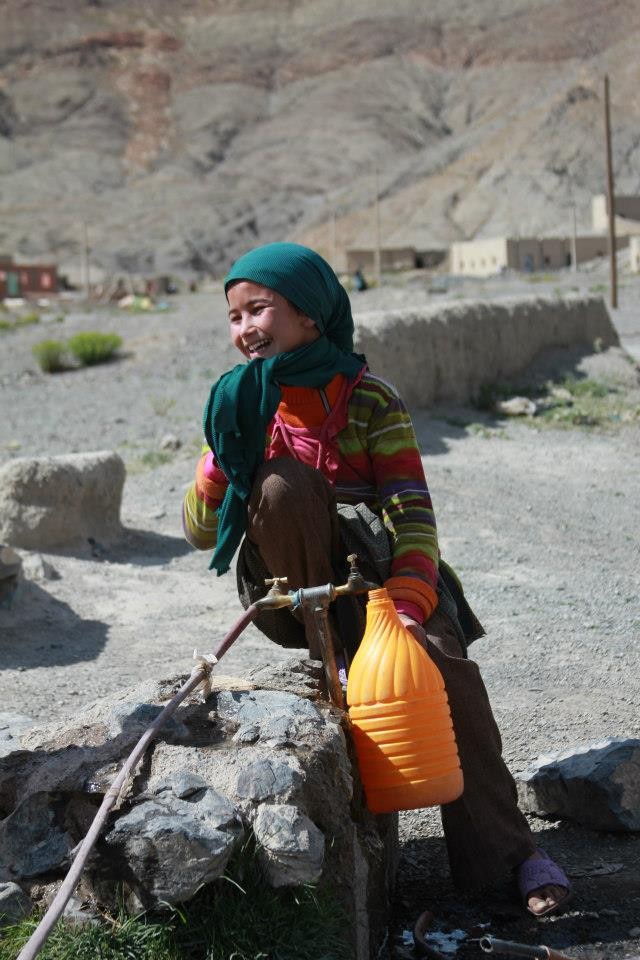
Building a Green and Resilient Future
USAID has provided support to Morocco’s water sector for over twenty years. In the late 1990s, USAID improved water resources management in the Souss-Massa River Basin, establishing a model of integrated water management that is still in use today. USAID’s work in Morocco has helped mitigate climate risks by introducing new technologies and building local capacity.
As the host of the 22nd Conference of Parties (COP22) in 2016, following the adoption of the historic Paris Agreement, Morocco had the unique opportunity to re-envision the COP as a vehicle and venue to drive forward concrete implementation. The decisions made at COP22 set a promising path for tackling this immense but solvable global challenge.
USAID Response
- Research: USAID supports Partnerships for Enhanced Engagement in Research (PEER), a program administered by the U.S. National Academy of Sciences to award grants to scientists in developing countries who partner with U.S. collaborators on research activities with strong potential development impact. USAID awarded two grants of approximately $250,000 each to Moroccan scientists working on clean energy. A researcher from the International University of Rabat is partnering with a scientist from Northern Arizona University to look at ways to deal with overload of solar energy grids during peak hours with support from Planet NI, a signature program of National Instruments. The second grant is pairing scientists from Al Akhawayn University and the University of Houston to look at renewable energy integration into smart buildings.
- Improving Irrigation Efficiency:
USAID is working with Massachusetts Institute for Technology (MIT) on a new Ultra-Low Energy Drip Irrigation program for Middle East and North African (MENA) countries. This three-year activity implemented in Jordan and Morocco is valued at over $2.3 million. The objective is to design and test ultra-low pressure drip irrigation systems for the MENA region that will cut pumping energy by 50 percent (for electric or diesel pumps), enable drip systems to run on low-pressure municipal water supplies, and facilitate the dissemination of low-cost, solar-powered drip irrigation solutions.
MIT, with its partners ICARDA and Jain Irrigation, have installed five half-hectare drip irrigation systems in Marrakech and Beni Mellal, incorporating over 12,500 prototype Ultra-Low Energy drip emitters. The installation is the start of a three season field evaluation of an Ultra-Low Energy drip irrigation technology that is expected to reduce the cost of operating drip systems by 50 percent. The prototype drip irrigation systems were designed with ~50 pressure and flow sensors that send data to the MIT team every 20 minutes over the cell network. The sensors monitor the energy usage compared to a conventional drip system and help validate systems-level computer models (including agronomics, system hydraulics, pump characteristics, power system requirements, and socioeconomic constraints), which in turn will be used to further reduce the cost of off-grid drip systems. The team is working closely with the National Institute for Agronomic Research (Institut National de la Recherche Agronomique - INRA) and several local farmers to complete the field trials and gather key feedback.
- Drought Monitoring:
USAID is working with the UN Food and Agriculture Organization (FAO), the International Center for Biosaline Agriculture (ICBA), the University of Nebraska Lincoln, and in-country partners at various government ministries and agencies to further develop a regional drought monitoring system (RDMS) that will serve as a catalyst to improve the drought early warning capabilities of countries in MENA. The overall objective is to empower decision-makers to plan for and manage the impacts of droughts on food and water security under current and future climate conditions. This $4.1 million project establishes state-of-the-art systems to monitor regional and national drought conditions, assist with drought planning and vulnerabilities It will also develop management plans and drought resilience strategies at national and local levels that will help reduce drought impacts on food supply and on the quantity and safety of water supply to vulnerable populations. In October 2016, ICBA and FAO hosted an international drought management workshop in Rabat to present the needs assessment, composite drought index maps, and next steps.







Comment
Make a general inquiry or suggest an improvement.